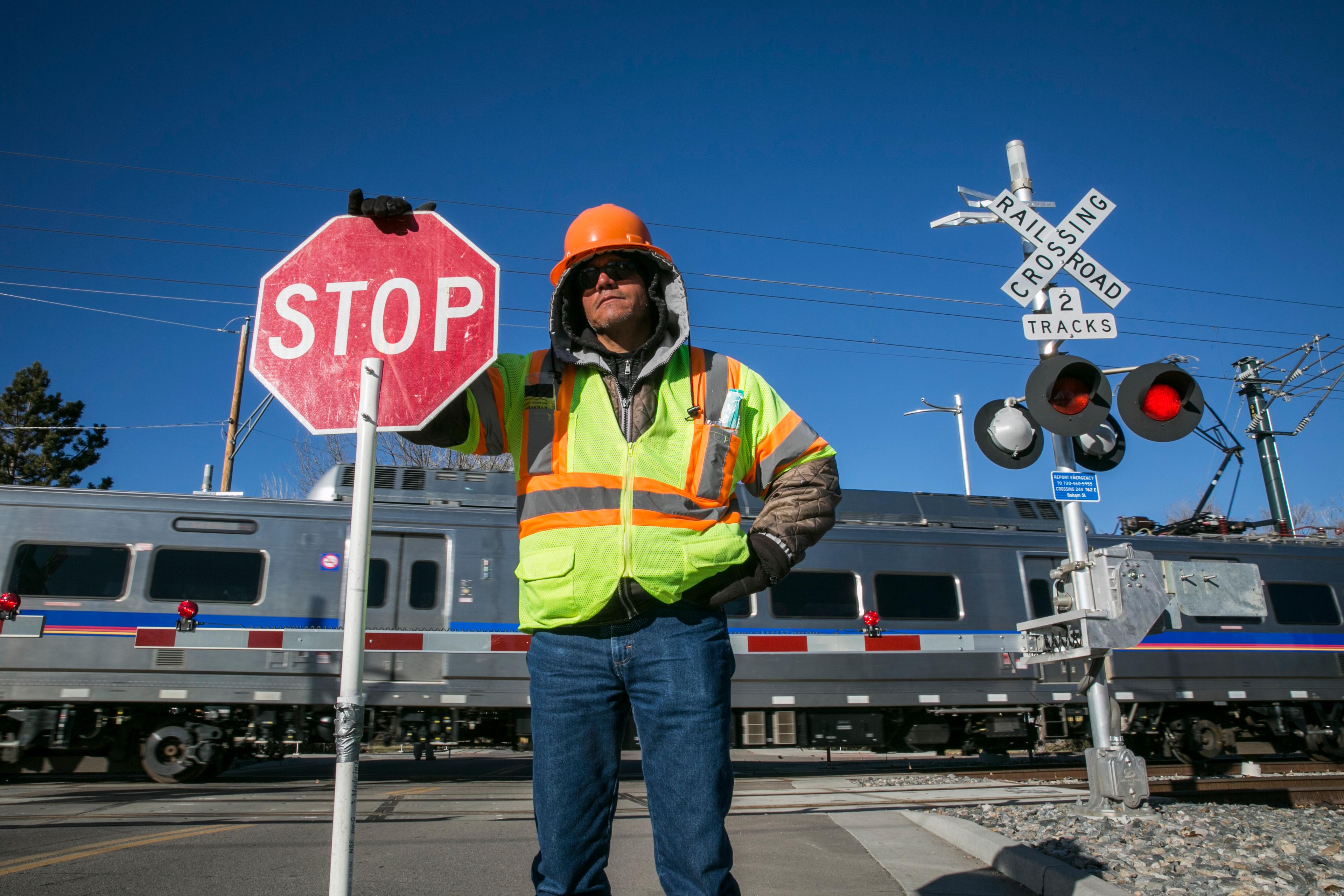
The Regional Transportation District does not have to cover more than $100 million in costs related to crossing gate problems on three of its commuter rail lines, a Denver District Court judge ruled Friday.
The ruling could bring resolution to a high-stakes legal fight begun in 2018 between RTD and the private consortium that built, maintains and operates three commuter rail lines including the flagship A-Line from downtown Denver to the airport.
The company, Denver Transit Partners, sued RTD in September 2018, demanding to be reimbursed for $111 million in costs related to crossing gate issues that plagued the A Line for its first few years of operation and delayed the opening of the G-Line to Arvada for nearly three years.
RTD countersued the company, arguing it tried to “retroactively shift blame” for the crossing gate issues and demanding $27 million in damages. It also sought the ability to terminate its decades-long contract with Denver Transit Partners.
In a 71-page ruling issued late Friday, Denver District Judge Andrew McCallin denied the private company’s claims — and also turned away RTD’s claims and its attempt to end its contract.
“The warning system has been approved … [and] is operating properly and carrying passengers on a daily basis throughout the Denver metro area,” McCallin wrote. “...It would be unfair to allow RTD to walk away from all of this now.”
Doug Allen, Denver Transit Partners’ CEO and executive project director, said the company will “evaluate our options for moving forward.”
“Despite the commercial disputes giving rise to the Court’s decision, we have always enjoyed a strong working relationship with RTD and we expect that to continue,” he said in a statement.
In a statement, RTD spokeswoman Tina Jaquez said the agency is "thoroughly reviewing" the decision.
"The agency is committed to its long-standing partnership with Denver Transit Partners," Jaquez added.
Both parties have repeatedly said that this legal saga would not have an impact on transit operations.
The dispute came about because of unproven technology meant to meet new safety standards.
Denver Transit Partners used new wireless technology to control crossing gates on the A-Line, B-Line and G-Line because it met relatively new federal “positive train control” safety standards. PTC systems can track trains’ movements remotely and even slow them down if necessary.
RTD initially lauded the lines as pioneers because they were the first U.S. commuter rail lines to have PTC-compliant systems built in “from the ground up.” But the crossing-gate system was not ready by the time RTD opened the A-Line in April 2016. Gates came down too early and stayed down too long — and in one case in March 2016, there was a near miss with two vehicles.
So federal regulators issued a 90-day waiver, allowing it to open under the condition that flaggers stand guard at all public crossings. Operators also had to blare horns at every crossing.
The issue turned out to take much longer than 90 days to fix. The federal government even threatened to shut down the A-Line in 2018 over the matter. Crossings were guarded and horns blew until 2019, much to the dismay of residents near the train lines. Flaggers and related costs escalated to more than $100 million, Denver Transit Partners said in court documents.
In a four-week trial in the fall of 2020, lawyers for Denver Transit Partners said the regulatory and technological entanglements created a “nightmare” for both parties.
"If there was a way to sue regulators I suppose, under this theory, perhaps both parties would join in,” company lawyer Thomas Snyder told judge McCallin. “But there's not. So you have to look at who's responsible under the contract for the risks that were going to occur between the two parties here.
“From our perspective, that's RTD."
RTD’s lawyers, in turn, argued that Denver Transit Partners should be held responsible for the choices it made — namely, in building a train line with an unproven crossing gate system.
"DTP alone supplied an incomplete system that did not account for normal operating conditions of a commuter railroad,” Jocelyn Knoll told the judge during closing arguments.
That argument appeared to have persuaded McCallin, who wrote in his ruling that the failures of the crossing gate system “appropriately rest” with Denver Transit Partners.
“It is clear from the events as they unfolded that the [system] did not work as designed,” McCallin wrote. “This is a risk that DTP as the designer and builder of this system assumed when it entered into this public-private partnership.”








